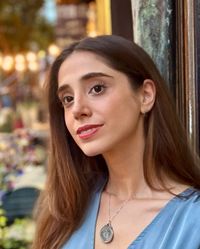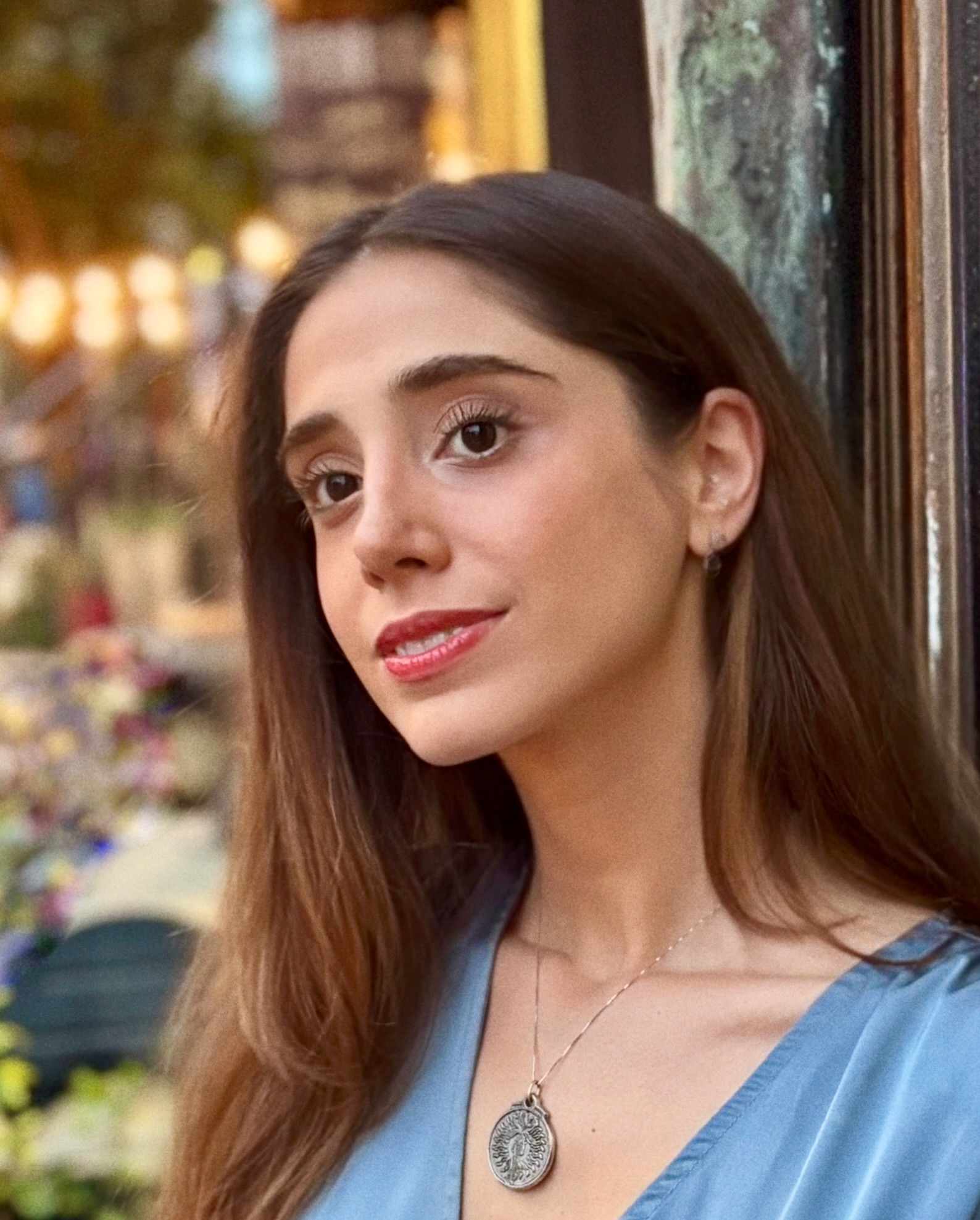Coach Sandy Brondello Breaks Her Silence on the Offers She Turned Down for Toronto
The WNBA history-maker sets the record straight on the whirlwind between her Liberty exit and her fresh start with the Toronto Tempo.


Select the newsletters you’d like to receive. Then, add your email to sign up.
You are now subscribed
Your newsletter sign-up was successful
Want to add more newsletters?

Delivered daily
Marie Claire Daily
Get exclusive access to fashion and beauty trends, hot-off-the-press celebrity news, and more.

Sent weekly on Saturday
Marie Claire Self Checkout
Exclusive access to expert shopping and styling advice from Nikki Ogunnaike, Marie Claire's editor-in-chief.

Once a week
Maire Claire Face Forward
Insider tips and recommendations for skin, hair, makeup, nails and more from Hannah Baxter, Marie Claire's beauty director.

Once a week
Livingetc
Your shortcut to the now and the next in contemporary home decoration, from designing a fashion-forward kitchen to decoding color schemes, and the latest interiors trends.

Delivered Daily
Homes & Gardens
The ultimate interior design resource from the world's leading experts - discover inspiring decorating ideas, color scheming know-how, garden inspiration and shopping expertise.
In Exit Interview, Marie Claire has a candid conversation with someone who’s left their job. We learn all about their experience—both the good and the bad—plus why they decided to leave and what life looks like on the other side.
Here, we talk to Sandy Brondello, who spent four seasons as head coach of the New York Liberty, and led the team to its first-ever WNBA championship in 2024. In November, Brondello headed North to take on a brand-new challenge: serving as the inaugural head coach of the Toronto Tempo, the WNBA’s highly anticipated expansion team. In this conversation, Brondello reflects on leaving New York, building a team from scratch in Canada, and—for the first time—the other offers she received before choosing Toronto.
What does this new chapter feel like for you right now—and what are you most excited about?
It's exciting. I've been a professional athlete, a basketball player, for a long time. I retired, went into coaching, and I've loved every part of the journey. Phoenix was great for eight years, and then I had four great years in New York and won their first-ever championship, so that's very special. But I just feel renewed energy—excited to start building a team from scratch in a great city and a new country.
I get to do something and build something from the ground up and have a big input into that. Because of the movement of the WNBA, the Olympic Games, and the World Cup, we've got more eyes on us than ever before. But while we'll be a Toronto team, we're also a Canada team, and that excites me. They've got players in the WNBA and some great young talent coming up, so it's an opportunity to continue to grow the game.
When did you first realize your time in New York was ending, and that a completely new chapter was beginning?
Right after we lost, I knew this was the end of the chapter. And obviously that's sad because you can build such strong connections with these players and the people around you. But in the end it wasn't sad for too long. I love what I do and other opportunities, and I had people reaching out immediately after, so that was nice.
[The other offers she received] were from the Seattle storm and the Dallas Wings. Once I decided, it was leaked, and then the other teams and I knew that I had to make a decision. All of them are just different, but I just felt excited to build something from scratch with the really good people in a really great city [Toronto] and with the whole country behind you. How cool is that?
Winning their first championship, creating history—always being the first head coach that brought a WNBA title to New York—that’s special. But for me, it’s more about the people.
You’ve been part of the WNBA for decades. When you look back, what feels most different about women’s basketball today, and what gives you the most hope for where it’s headed?
Get exclusive access to fashion and beauty trends, hot-off-the-press celebrity news, and more.
It’s a real movement. There's so many eyes on our game. We've had great players back in my day—Lisa Leslie, Lauren Jackson's—and they were the trailblazers, but now the players are finally getting the recognition that they deserve. And they're more than just basketball players, they’re human beings, obviously. They have their own passions off the court as well.
I’ve been in the WNBA for all but three years, and just to see the growth of the league—the standards have raised, the players keep getting better and better, the technology, the training methods. And now people are watching and taking notice and loving our sport. So women's sport is a real movement. The WNBA is a real movement at the moment. And that makes me very happy.
Looking back at your career as a whole, what are you proudest of—and what stands out most from your time with the Liberty?
I’m a mother—that will always be the proudest thing, my children and my pride and joy. But I’m also very proud that I get to do what I love, which is my passion. Basketball’s been my passion since I started playing at the age of nine. Throughout my whole career, I didn’t win every game. I lost championships—they hurt—but I see it as an opportunity to grow.
[On coaching the New York Liberty]: Winning their first championship, creating history—always being the first head coach that brought a WNBA title to New York—that’s special. But for me, it’s more about the people. The people that you work with, the amazing players, and the great journey together.
The players and I will always have that connection—after over four years, going through so many highs and lows—that won’t change. I have so much respect for those ladies in that locker room.
What was it like to leave the people you’d built such strong connections with, and what do you hope people remember most about your time in New York?
That I built a really strong culture there that the organization and the players are proud of, and the city should be proud of. I continue to hold myself to the highest level and continue to grow, and that's what I demanded of the players. That we had an enjoyable journey with a leader that was committed to excellence, but also wanted to enjoy the journey as well—and I did.
The players and I will always have that connection—after over four years, going through so many highs and lows—that won’t change. I have so much respect for those ladies in that locker room. I'm a former player too, so I know what it’s like to be in that area. Those relationships will always be ongoing, even though I won’t be their coach.
You’ve mentioned that you’re always striving to grow. How do you think you’ve evolved as a coach—and what are you looking ahead to next?
I was a pretty good player back in the day, but I was quite shy when I was playing. Basketball was my haven. So I'm just more confident, and I've grown in everything—being a better coach, being a better leader. But I haven't changed my values from when I grew up. Even my friends who I haven't seen for years, regardless of what I'm doing or what I've achieved, say, "You haven't changed," and that makes me happy. Why should I? This is my job.
I'm one of two coaches that’s won two championships with two different teams. I’d like to be the first to win it with three. How about that? It's about building sustainable success, playing an attractive style of basketball and growing the game of basketball in Canada.
I’m very big on that—on building the culture and making sure all these women are feeling empowered and valued. The lesson of experience is always positive, even if at the time it feels negative.
How do you usually celebrate your wins—and how do you handle your losses?
I might do a dance here and then in front of the players. Over the years, sometimes I wouldn't celebrate the wins enough because the expectation's always so high, and that was expected every single time—and guess what? You're not always going to win. So I made a conscious effort to celebrate wins more in terms of just showing my joy in front of the team, even if we didn't play so well. We are playing in the best league in the world, and it is a journey. I don't like negativity—I don't feel that allows you to get back to where you want.
And that doesn't mean I don't hate losing. So I would always be like, ‘okay, what's our solution to be better? What's our process to be better and to grow and stay together?’ I’m very big on that—on building the culture and making sure all these women are feeling empowered and valued. The lesson of experience is always positive, even if at the time it feels negative.
Who has been the most influential role model in your life?
There are so many, but I had a coach from the AIS (the Australian Institute of Sport, now called the Center of Excellence) who was also the Australian men’s team coach. When I first came in, I grew up on a sugarcane farm. I was a pretty good player, and he told me, “You’re going to play for Australia one day.” I was 17 or 18, and he worked with me and believed in me, and it happened one year later. It’s very rare for a player to make a national team at 18, and I did that. He believed in me more than I believed in myself at that time.
When you’re young, you’re not sure what you can do. I had to continue to grow as a player, but he’s a role model I look up to. I’ve had other great coaches too, and I’ve coached some great players and I’m still very close to a lot of them. I always tell any young coach—‘you need mentors,’ because this journey can get lonely at times. You need people who support you, give you advice, listen—all of it. They believe in you and they've got your back. That's important.

Noor Ibrahim is the deputy editor at Marie Claire, where she commissions, edits, and writes features across politics, career, and money in all their modern forms. She’s always on the hunt for bold, unexpected stories about the power structures that shape women’s lives—and the audacious ways they push back. Previously, Noor was the managing editor at The Daily Beast, where she helped steer the newsroom’s signature mix of scoops, features, and breaking news. Her reporting has appeared in The Guardian, TIME, and Foreign Policy, among other outlets. She holds a master’s degree from Columbia Journalism School.